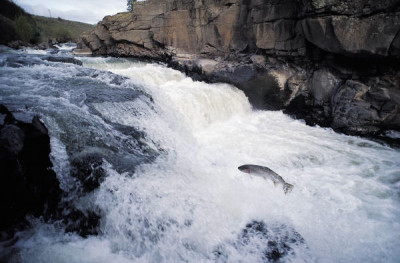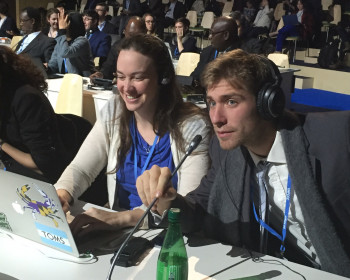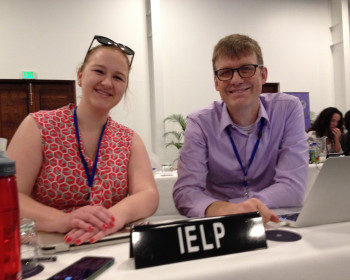IELP fights for public access to international decision-making on salmon harvests
Open gallery

IELP has been working as part of the Pacific Salmon Treaty Reform Coalition to gain access to the meetings of the Pacific Salmon Commission, which under the auspices of the Pacific Salmon Treaty, a bilateral agreement between Canada and the United States, makes harvest allocations for oceanic salmon fisheries and other important decisions regarding one of the Northwest’s most prized natural resources. In a significant departure from historically closed meetings, the Commission invited IELP to share its expertise on public participation in international wildlife and fisheries management at the Commission’s last meeting in Coeur d’Alene, Idaho October 17, 2007. With the view that the public has a major stake in salmon harvests, IELP had been pushing the Commission to reform its historical practice of holding its meetings behind closed doors and not sharing key documents and information with public stakeholders. Now under pressure to reform its current practices, the Commission is re-examining its Bylaws with a view toward more robust and transparent decision-making.
The Pacific Salmon Treaty (PST) is a bilateral agreement between the United States and Canada that governs the allocation of ocean harvest of salmon originating in the rivers of Southeast Alaska, British Columbia, Oregon, Washington, and Idaho. The United States and Canada signed and ratified the PST in 1985 after years of “fish wars” between the two countries. To account for the evolving nature of the status of salmon stocks, the PST consists of a core agreement, setting out basic principles and guidelines, but then also consists of a number of Annexes, which contain the more detailed and nuanced allocation decisions for specific stocks and/or species and expire after a set number of years. Prior to an Annex expiring, the Pacific Salmon Commission (PSC) must renegotiate the terms of harvest and allocation for that specific species.
The PSC is the executive body charged with ultimate decision making under the treaty. Eight Commissioners-four from each country-plus eight alternate Commissioners make up the PSC. The U.S. side consists of a representative from Southeast Alaska, the federal government, the tribes, and a representative that alternates between Oregon and Washington, plus an alternate for each representative. The PSC meets at least three times a year, and to date, these meetings have been inaccessible to the public, despite current bylaws that suggest that meetings are open to the public, except in limited circumstances.
Based on the current bylaws, IELP attempted to attend a meeting of the PSC last February. The PSC denied access to IELP, and IELP, along with the other members of the coalition, began to advocate for greater public access to PSC decision-making, in terms of both access to meetings and access to important documentation. The coalition believes that public access to bilateral decision-making concerning allocation and harvest of an important natural resource, like salmon, provides necessary transparency and accountability for a robust international salmon policy. It also ensures that all stakeholders’ views have an opportunity to play a role in decision-making.
In support of these views and to offer suggestions for reform, IELP drafted a white paper that examines the current PSC bylaws in the context of the public participation rules in other international fisheries management fora. Based on an exchange of letters with the PSC, it invited the coalition to present its ideas about public participation at its most recent Executive Session. The PSC generally expressed its understanding that the time had come to open up the decision-making process under the PST and suggested that it was in the process of reexamining its bylaws with a view toward making them more amenable to broader public participation. Additionally, the PSC welcomed IELP’s paper and indicated that it provided useful guidance on ways to move toward a process that would be mutually beneficial to the public and the PSC. IELP and the coalition hope to work further with the PSC to draft new bylaws that provide broader stakeholder access to salmon management decisions. Both IELP and the coalition view this progress as a major victory for salmon advocates.

More Global Law Alliance for Animals and the Environment Stories
Global Law Alliance for Animals and the Environment is located in Wood Hall on the Law Campus.
MSC: 51
email ejt@lclark.edu
Global Law Alliance for Animals and the Environment
Lewis & Clark Law School
10101 S. Terwilliger Boulevard MSC 51
Portland OR 97219

